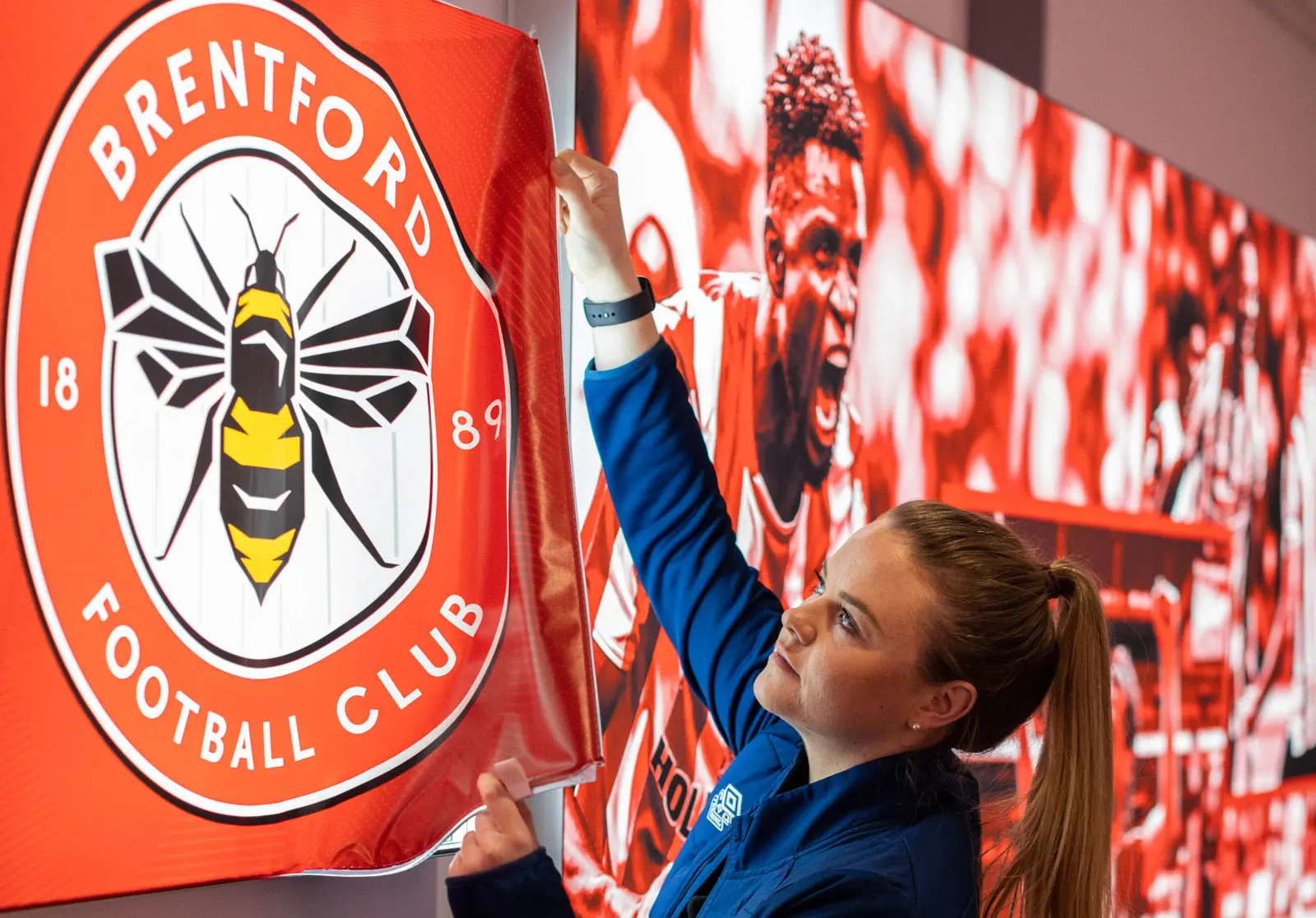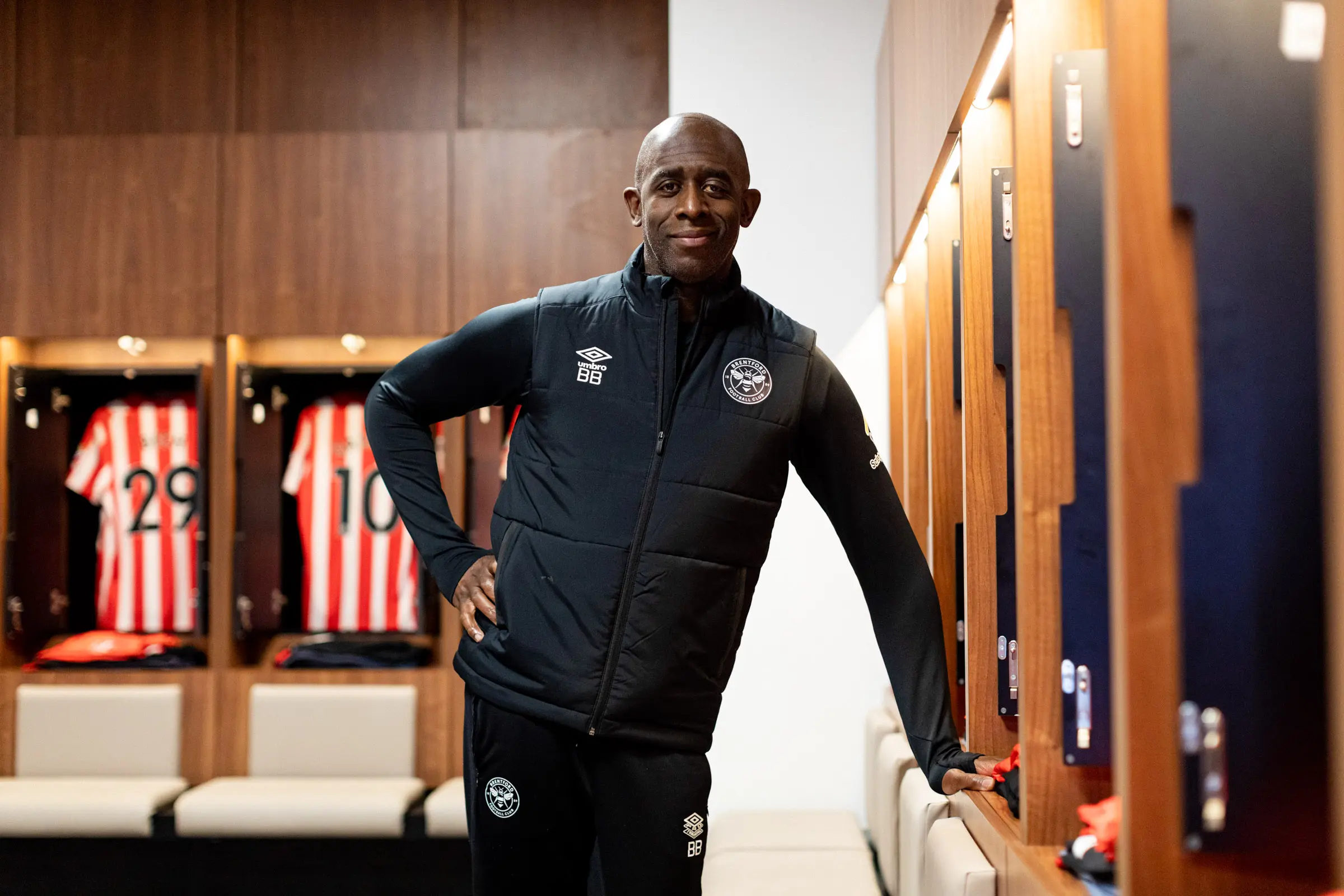

Marley Spoon
How Marley Spoon raises the bar on food quality and customer satisfaction by using insights from SafetyCulture at every step of the meal delivery supply chain.

Since exploding onto the Premier League stage in 2021, Brentford Football Club has exceeded all expectations. Here’s how they did it.

Since Brentford Football Club stepped up to play in the Premier League in 2021, the stakes have never been higher. The game has changed. The goalposts have shifted. And they became the team with something to prove.
Well into their third season of playing in the highest tier of English football, Brentford FC has exceeded all expectations. Every game is played on the world stage — and that requires seamless operations. It’s not just the players on the field, either. It’s the team behind the team, raising standards together and driving each goal forward. From keeping players match-ready with personalized kit to managing broadcasters and hundreds of stewards, there’s no room for error. And it takes teamwork and tech to keep it all in check.
Here’s how Brentford FC leverages the SafetyCulture platform to find a better way of working as a team – and perfecting that winning formula both on and off the field.
In recent years, Brentford has ticked off many milestones, like opening its new stadium – one of the most significant developments in the history of Brentford Football Club. The Brentford Community Stadium can hold up to 17,250 people per game, and it’s not just home to football but professional rugby as well. Getting the site match-ready is a huge process. As soon as a Bees home game finishes, the Brentford operations team works hard to swap out branding, barrier jacket covers, and even hospitality area layouts for the next scheduled rugby match.
Pre and post-match checklists help the operations team stay on top of the countless moving parts involved in hosting thousands of fans on home soil. They use our Inspections feature on the platform to keep track of accreditation, manage broadcasters, and respond to unexpected events like rogue drone flights and cheeky streakers – it’s all in a day’s work. Not to mention the bread-and-butter tasks like setting up barriers, seating, and ensuring punters can all grab a pint at halftime.
To give you some idea of what’s at stake, we spoke to Jess Morris, Head of Stadium Operations at Brentford.
“Before we were in the Premier League, we had limited formalized processes,” Jess says. “We’ve all had to raise the bar with our outputs. We have a small team, and we quickly went from being a traditional club that was relatively old school in its processes… to having to tighten up.”
With the amount and frequency of checks needed, logging a mental checklist or using pen and paper quickly becomes a burden. “Before the SafetyCulture platform, it was impossible for people not to be around,” Jess says. “We need to make sure people can jump in and out of different tasks and know what’s going on.” Brentford turned to the SafetyCulture platform to digitize their pre-match procedures. They uses the platform to ensure the grounds are in good order, and manage accreditation, security, and cleaning.

The thing with operations is, if we do our job right, you never really know that we’re there. We’re literally on the world stage, so there’s no room for error. When the stakes are raised, sometimes the stress levels can rise too. It takes a mental load off me and my team knowing that every important step is digitized and we all have visibility.
Brentford prides itself on being number one in fan experience, and it strives to achieve the same title in sustainability and security. They’re tracking things that are out of sight, too. That’s where James Beale, Sustainability Manager at Brentford FC, comes in.
James is helping Brentford play the long game to ensure the fans stay healthy and happy long after they’ve spent time on their grounds. They’ve installed SafetyCulture Sensors in critical areas around the stadium to automatically measure temperatures, carbon dioxide levels, pollutants, air quality, and when doors open or close.
“You can’t manage what you don’t measure,” says James. The Brentford team can view this data from the SafetyCulture platform anywhere, anytime. If carbon dioxide levels reach a certain threshold, they can take quick, easy preventative action like re-directing crowd flow to improve ventilation.
A key part of ensuring every fan has an unforgettable matchday experience is making their security game the best it can be. Open and close door sensors in their server room, help spot and prevent potential risks, and safeguard their equipment. Security will be notified if the door is left open too long, so fans catch all of the action, no matter where they are.
Sensors are helping Brentford gather data-driven insights to improve security and enhance the fan experience for next season, both at the stadium and for those watching at home.
We’re trying to create an atmosphere where our fans can come a bit earlier and stay a lot later with us, which helps with the match day experience.
A small team and a large stadium means it’s next to impossible for the operations team to be absolutely everywhere, all at once. So how is it that they’re able to flag issues and have them sorted in record time on game day? Well, they enlist the help of their fans – it’s essentially safety in numbers. The team uses SafetyCulture’s Issues feature to help with this. “By having a QR code on every seat, fans can talk to us on the day. They help us track down problems within the stadium,” says Brentford FC Operations Manager, Tom McGuinness.
So if a fan spots a spill hazard or some broken equipment or an away fan seated in a home area, they simply need to scan the QR code to capture and report the incident. This goes straight to the security team, who can identify the exact seat location, zoom in with the camera, and send their resources off to rectify the issue in no time.
When the Brentford team turns out every game all prepped in perfect kit, well, you have Bob Oteng, Kit Logistics Manager, and his team to thank for it. “At this level, it’s zero tolerance for error. We need to make sure that every player has what they need, and that evolves week to week with squad changes,” Bob says.
Each player has their own idiosyncracies – requiring individual kit set-ups. One player might only play in extra small shorts, another might want socks of a certain length. Bob is the go-to expert for such crucial information. He’s the key to all the specific requirements that help the team play at their best at his fingertips.
With the SafetyCulture platform, all this becomes shared knowledge. Daily training and match-day checks mean that anyone in Bob’s team can pick up a device and have confidence everything is in check. This eases the mental load considerably – online documentation means Bob has confidence that his team has the know-how to get the job done well and that all the required kit will make it to game day.
What we would usually tick off on a sheet of paper, we now tick off in the SafetyCulture platform. It’s much more convenient. As we physically handle the shirts, shorts, and equipment, we track it all. It gives us great confidence that everyone has what they need.




Managing home and away games and navigating new stadiums means the Brentford team must keep their eye on the ball — often, from a distance. With data centralized in the SafetyCulture platform, everyone has sight of the work occurring that day, not just the team member logging the information. This is crucial for a dispersed team working from different stadiums.
“Logistically, we’ll make sure everything is in place,” Bob says. “For away games, my assistant or I tend to drive in or fly in ahead of the team and speak to our director to make sure everything is coordinated… we speak to other parties, like the players and security. There’s a lot to factor in.” Going digital allows teams to pick up work amid unexpected staffing changes.

Football is a diverse sport, bringing different communities and cultures together. The game is stronger for it, and the Premier League is committed to protecting and promoting this diversity across all aspects of the sport. They provide a framework to support clubs in setting and achieving their targets for greater representation and improving their policies and practices.
Brentford has outlined a three-year strategy to put inclusion at the heart of everything the club does – from the community, fans, and players, to using the Brentford Community Stadium to amplify their messages. They aim to be market leaders in their equity, diversity and inclusion (EDI) work, and training is a big part of this.
Brentford has recently introduced a mobile learning element to their EDI program with the Training feature on the SafetyCulture platform. From fan education to annual EDI training for players, coaches, and staff, using microlessons helps to make these learnings stick. More so than that, the Premier League Equality, Diversity and Inclusion Standard (PLEDIS), the league’s accreditation system, is progressive – always evolving and improving since its introduction in 2015. Best practice is continually developing so microlearning tools like Training can help enhance employee understanding, drive effective implementation, and contribute towards a better way of working.
Training extends to upskilling Brentford’s growing team, including the extra sets of hands needed to support their operations on match day. New stewards and security personnel need to have the highest level of security training. “Having everything on the platform means everyone’s getting the same training, they can do it in their own time, and it’s a consistent way of giving everyone the Brentford message,” Tom says.
Having all the tools on a single platform allows Brentford to seamlessly deliver the best experience for its fans, players, and staff. “It’s really the start-to-finish Match Day platform for us,” Jess says. “Everyone else can come here completely worry-free and have the ultimate experience.”


How Marley Spoon raises the bar on food quality and customer satisfaction by using insights from SafetyCulture at every step of the meal delivery supply chain.
Explore more stories, expert guides, and thought leadership from SafetyCulture